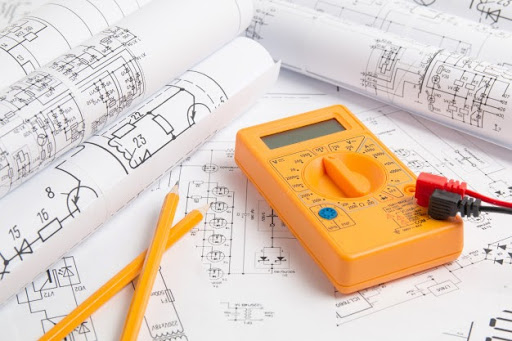
If you're thinking about a career as an electrician, it is important to know the types of work they do. There are many types to choose from, such as residential electricians or power grid engineers. Below are examples of different electrician jobs. Read on to find out about specific types of jobs. You might even want to consider becoming an electrician yourself!
Electrical engineers
The title of the job is electrical engineer. The job is quite demanding. They often need to take on large-scale projects and invest large sums of cash. Because of this, there is high competition for jobs, and the work-life balance can be difficult. Here are some tips on choosing an electrical engineer career. Apprenticeships are a good option for those who are interested in this area. It can help you get on your way to a lucrative and rewarding career!
An electrical engineer is an expert in designing and developing electrical systems. They are responsible for the design and supervision of electrical equipment. Electrical engineers work on a variety of projects, from small to large-scale energy transmission. They also help to improve and design existing electric systems. Electrical engineers use a variety of skills to create products that help improve the quality of life and make the world a better place to live. The job is varied and interesting because of the vast nature of their work.

Telecommunications electricians
Telecommunications technicians do all sorts of work. They can configure equipment or train users in connection. Some electricians work on their own, but most need to be available for overtime or weekends. It is important to keep your system in good condition. However, even the most careful worker can accidentally spill coffee on valuable outlets. There are many training options available to help you become a telecommunications contractor.
Telecommunication installers work in every part of the country, including urban areas. Some of the cables are strung directly overhead on telephone poles while others run across branch lines. This job requires classroom learning as well as hands-on work experience. Apprentices often spend between three and five years in this field. Many telecommunication electricians have the same training as those who are electrical linemen. It is best to obtain a bachelor's in order to be a telecom installer.
Industrial electricians
Industrial electricians work in electrical installations and control. They install new equipment, maintain existing systems and repair or modify machines. They help clients understand the root causes of electrical system problems and communicate them to their clients. They may be asked for help in replacing vital electrical equipment. These reports are used for compliance purposes and maintenance to ensure the safety of the facility's electric systems.
The majority of electricians work 40 hours per week. However, industrial electricians can be called upon for additional hours during inclement weather or holidays. They are often required to work extra hours, which can lead to them sacrificing their time with family members. Many industrial electricians work overtime. They may also be required to work on weekends, holidays, or during system outages. The initial salary for this career is low, and it increases as you gain experience. You can expect to work at least 40 hours per week and make a good living by combining your education and training.

Residential electricians
Have you ever wondered what residential electrical contractors do? While commercial electricians generally work in large commercial buildings, residential electricians typically deal with low voltage systems, such as 120V or 240V. Residential electricians may use thinner gauge cables and have less insulation than commercial ones. They may also require more insulation for wiring in a house. A combination of plastic conduits and sheathing is used by residential electricians. Commercial electricians may use larger wires.
There are many other jobs that residential electricians can do. They can install an electric service in a home, run conduit, and use wiring protection. They can also install circuitbreaker boxes and other residential wiring systems. They may also be involved in electrical design, including the placement of lighting fixtures and heating and air conditioning systems. They may also be involved with new construction projects. They can advise on installing circuit breaker boxes and other electric systems.
FAQ
Can I cancel my contract at any point?
Yes. However, you must notify the court within 14 days of signing the contract. You may usually cancel your contract by writing notice at least seven working days prior to the date in your contract. If you do not give enough notice, the contractor may still owe you money for work that has been completed.
Who provides a Service Agreement?
The service agreement between you and your customer defines how you will provide them with services. It details the customer’s responsibilities, what they can do for you, and when they will have to pay.
Additionally, the service agreement confirms whether additional fees will apply to extra services.
A service agreement should cover all terms and conditions. This includes payment methods, delivery times, warranties, etc.
Use this template to ensure that you have covered all the details of your agreement.
What is a service-contract agreement?
A Service Contract Agreement is an agreement between two or more parties to provide services. The SCA defines the services and determines how much effort and time should be spent on them. It also specifies who pays for them and when and where they should start. It also stipulates what happens if either party breaches its obligations under the agreement.
What's the purpose of the service contract?
A Service Agreement is used to establish the terms on which your customer will purchase goods from you. The Service Agreement also outlines how you will pay them for those services.
The most common form of this document is called a Sales Order Form. This section lists the products being purchased by the customer as well as their price. The order will also include any additional items, such as delivery costs, VAT, insurance, and so forth. You also specify the delivery and payment dates.
You can use a different document depending upon the transaction's nature.
If you are offering a service instead of selling products, an invoice might be appropriate.
A Purchase Order Form is what you would use to buy from someone else.
Make sure to include all necessary information when you are creating a sales form.
Remember: The buyer will understand your sales order form if it is more detailed.
Do I need a lawyer to sign my Service Agreements?
No. Your service agreements can be signed by anyone. However, you might want to appoint a legal representative as a precautionary measure.
People who act for another person are called legal representatives. If you are an entrepreneur, you may choose to have someone represent you professionally.
This could include hiring a lawyer or accountant. This could be a matter of appointing someone who will look after your business interests.
The client usually appoints a legal representative. But sometimes, a legal representative is hired by the vendor.
Legal representation in any case means that you are legally protected.
Statistics
- (d) Contractor disputes related to compliance with its obligation shall be handled according to the rules, regulations, and relevant orders of the Secretary of Labor (see 41 CFR60-1.1). (acquisition.gov)
- (v) Place or places of performance of the prime contract and first-tier subcontracts estimated at $10 million or more, if known. (acquisition.gov)
- (ii) Name, address, and telephone number of each proposed first-tier subcontractor with a proposed subcontract estimated at $10 million or more. (acquisition.gov)
- (3) The contracting officer may provide for a contract price adjustment based solely on a percentage rate determined by the contracting officer using a published economic indicator incorporated into the solicitation and resulting contract. (acquisition.gov)
- Don't take their anger personally, they are mad about the situation 99% of the time. (activatemylicense.com)
External Links
How To
What is the difference in a service agreement and contract?
A service contract is an agreement between a provider and a customer to provide services. It creates an obligation on both parties. The service term refers to products, information, advice, and other services provided by a company. However, it does not include financial services.
A contract is a legally binding document which outlines the terms of a business partnership. You can purchase a product at a retailer and a contract will be created. The reason you are required to pay later is because of the obligation you have to buy it. When you accept employment, you are entering into a contract.
No formal documentation is required for a service agreement. Written service agreements are rarely used in practice. Instead, verbal agreements are standard.
However, a service contract has many benefits over a contractual agreement:
-
A service agreement can be more flexible than a contract.
-
It allows a service supplier to change its mind and not be penalized.
-
It gives the service greater flexibility in deciding how to deliver the agreed-upon service.
-
It gives a clear record as to what was promised.
-
It is simpler to prosecute a service provider.
-
It is cheaper to draft a service agreement than a contract.
-
It is less likely to result in litigation.
-
It is simpler to terminate a service arrangement than a contractual contract.
-
It's easier to modify a service contract than a traditional contract.
-
You can set up an ongoing relationship by using a service arrangement.
-
It is possible for a third party to split the cost of writing a service agreement.
-
If you are drafting a Service Agreement, it is possible for you to include a clause that requires arbitration.
-
You can include provisions about confidentiality, nondisclosure, or proprietary rights.
-
It is possible, for example, to specify the length of the contract.
-
It is possible to make the service agreement subject to a specific condition precedent.
-
It is possible to say that the service provider is liable only for negligence or gross negligence.
-
It is possible to limit the liability for consequential damages.
-
It is possible for the service provider and customer to enter into an additional agreement.
-
There are certain circumstances where it is possible for you to give notice of termination.
-
It is possible to require the service provider to provide a warranty.